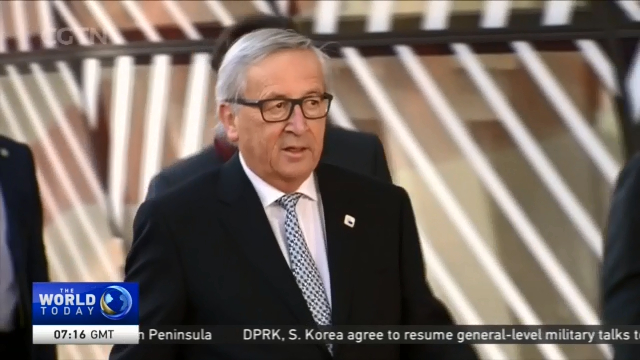
15:53, 02-Jun-2018
Italy Economy: Impact of recent political turmoil
02:34

While the formation of a new coalition government in Italy may help to stabilize markets, rattled by weeks of uncertainty, this does not signal an end to Italy's economic woes as Natalie Carney reports from Rome.
A slew of old problems such as stifling bureaucracy and deep-rooted corruption has made it difficult for Italy to pull out of its political and economic crisis.
UMBERTO TRIULZI, ECONOMICS PROFESSOR SAPIENZA UNIVERSITY "We have a very big decline in investment in the last 10 years so we could not succeed in making reforms in Italy. We have a lot of problems from the labor market, and we have some problems with the productivity growth."
Most alarming is Italy's national debt nearly two-point-seven trillion dollars. As a member of the European Economic Union, Brussels has placed strict and unfavorable austerity measures on the country to stop it from defaulting.
UMBERTO TRIULZI, ECONOMICS PROFESSOR SAPIENZA UNIVERSITY "We have to reduce the debt ratio, the bill up to 60%. So we are obliged in the next 20 years to reduce by 120% the debt ratio - so it's very heavy and the austerity doesn't help us to grow, because we can not invest because we are too much in debt."
Over the past nine years, Italy's annual economic growth has struggled to reach one percent, while its unemployment rate hovers around 11%.
NATALIE CARNEY ROME "The sluggish economy has pushed millions of Italians into poverty. According to statistics, since 2008, the number of Italians at risk of poverty rose by three million, the largest increase of any EU nation."
ALBERTO CASTELVECCHI, SOCIOLOGIST LUISS-GUIDO CARLI UNIVERSITY "The Italians have been fighting for decades with a huge burden of public debt and this is not improving. And sometimes the so-called populist parties seem to want to discharge the problem on the shoulders of the European system. But if you think clearly about that, Italian public debt is to be blamed on the Italians, so we should take responsibility for that in order to save Europe."
Some may argue that is what Italy's new euroskeptic populist administration plans to do by implementing expensive programs to help create jobs, but it's unclear how the EU will react to that and if these budget policies could set off a ripple effect across the union. Natalie Carney, CGTN, Rome.

SITEMAP
Copyright © 2018 CGTN. Beijing ICP prepared NO.16065310-3
Copyright © 2018 CGTN. Beijing ICP prepared NO.16065310-3